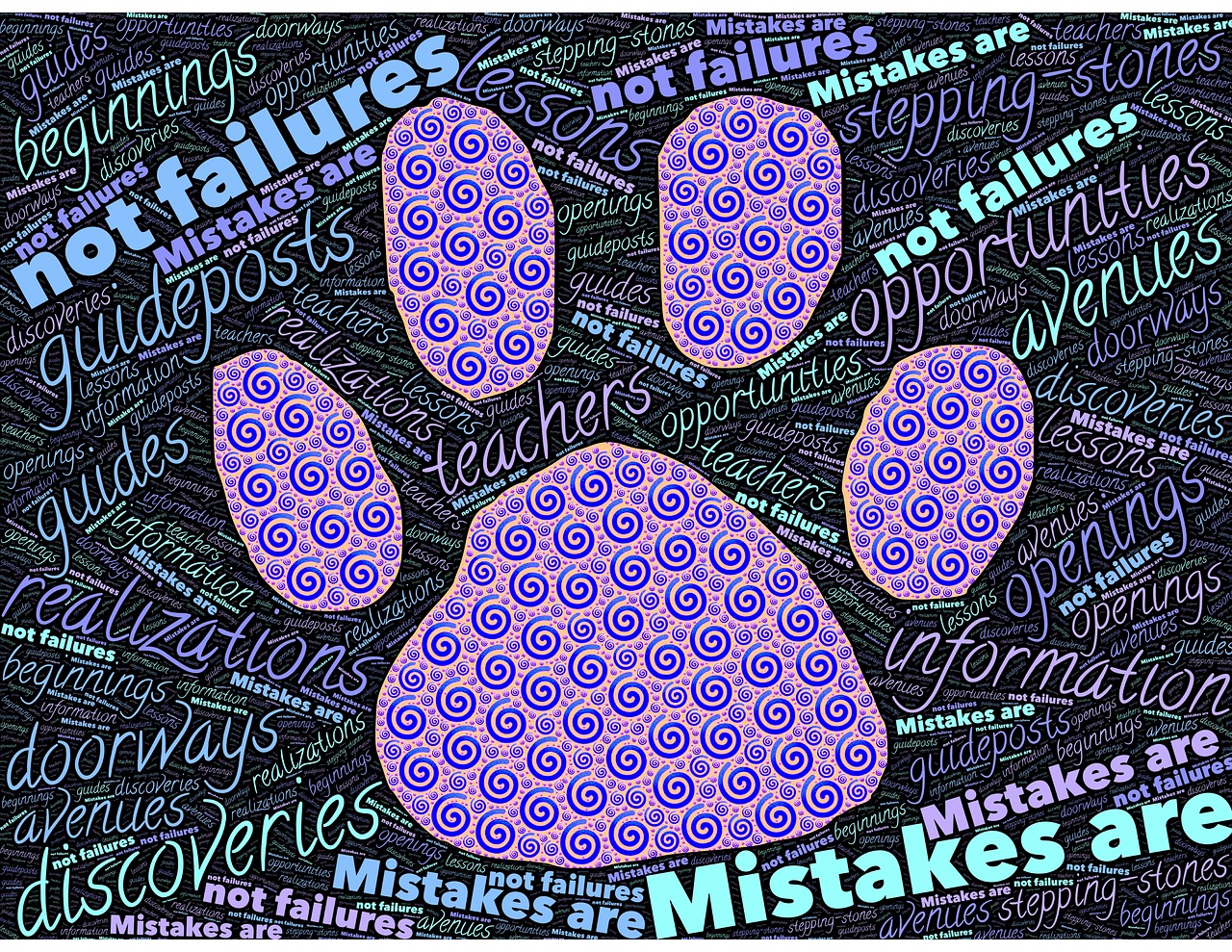My work requires a lot of reading, research and one-on-one conversations with women of all ages, cultures and socioeconomic backgrounds.
I’ve gained tremendous insight as to what women want to know when it comes to money and their greatest financial regrets.
Don’t get me wrong, men make plenty of financial mistakes as well. However, as you’re about to see, men do not face the same challenges women do to build financial security. And they are much more likely to recover from financial mishaps than women.
It’s not fair but it’s the reality, at least for now.
And until this changes, women will need to make better financial decisions to ensure they’re okay. So don’t make the same financial mistakes and blunders tens of millions of women do.
In this post, I’ll cover how to avoid these ten biggest financial mistakes women make with money and gain financial control of your life:
Financial Mistake #1: Letting Shame Get In The Way

I truly believe that the greatest obstacle to financial security is not the lack of knowledge – it’s shame.
So many women tell me they are embarrassed they’re not where they thought they should be financially.
That shame stops them in their tracks. They quit, even before they get started or try to course correct.
Here’s what I need women to understand:
- For as long as I can remember, society has been sent a message that talking about money is impolite. This is especially true with women. So it’s no wonder that we don’t discuss our financial challenges and desires. Except that money is a necessity in our capitalistic world. And if we don’t talk about it, we won’t be aware of what we need to know and do.
- Everyone makes mistakes with money. Everyone has regrets. When you know better, you’ll do better – so stop reliving a past that you can’t change. Commit to learning. Progress forward and when you slip up, dust yourself off and try again.
Financial Mistake #2: Thinking You Need Financial Superpowers
The financial world has made it so unnecessarily complicated that many women feel they need special skills or a PhD in finance to get financially fit.
But, it’s not true.
Personal finance just hasn’t been widely conveyed in a way that’s relatable.
It’s not been taught in schools and it’s barely discussed in mainstream media. So it feels like this exclusive, mysterious world.
If an article, information sheet or video is filled with complex financial jargon, remember that this is a reflection of the “subject matter experts” inability to explain money in a simplistic way and not a reflection of your ability to understand it.
So, ask for help and ask questions.
Financial Mistake #3: Believing Managing Money is Time-Consuming

Most women I know juggle family obligations, work and personal time, and can’t see when they’d ever make time to manage their money.
We all make time for what we prioritize. So be honest with yourself.
How important is your financial wellness and what are you willing to do to make sure you reach it?
Take this analogy for example:
No one expects to get physically fit by going to the gym for 8 hours and then stop. They go a few times a week but consistently. Approaching your finances works the same way!
It doesn’t take a lot of time to set up your finances properly and be on top of it. You can start with one piece of the financial picture and slowly progress to another piece until you have a proper plan in place.
Financial Mistake #4: Being a Perfectionist
Many women I know suffer from the “perfectionist” complex. (I am guilty of this!) That is, they feel if they can’t learn everything there is to know about their finances, and if they can’t get it right the first time, they shouldn’t do anything.
Building your financial “house” is progress and it will change as circumstances evolve.
Taking a perfectionist approach to something that can’t possibly be done 100% correctly (or even 90%) will not work.
All parts of a financial plan are supposed to be fluid. Managing money is about proactively creating parameters so you manage most of the risk and aim for a probable outcome with the information you know today.
Financial Mistake #5: Passing the Finances to Your Partner
If I had a dollar for every time a woman tells me she lets her husband or partner handle the family finances because she’s too busy or because he’s better at it.
Studies show that men rank higher in financial literacy compared to women. However, they don’t rank that high which means their knowledge is okay but not great.
Men also tend to be overconfident in their financial skills (such as picking stocks) while women tend to be under-confident (wrongly so).
Women who solely rely on their partner to manage the household finances without input could be putting their family and own future at risk.
Plus, I can’t tell you how many men have told me they wish their partners would get involved and take some of the burden off them. Think about that the next time you hand everything over to him!
Financial Mistake #6: Overvaluing Your Household Budgeting Skills
Women are told and therefore believe that they’re great at managing money because they are good at handling the household budget.
Managing the household purse strings is indeed important.
But, you can’t budget your way to financial wealth and security – certainly not in today’s environment.
This is because expenses are rising far faster than wages.
Here’s a shocking fact:
Women who face a 20% wage gap are likely to deal with a 40-50% wealth gap in retirement because less money means less savings and less contribution to a corporate or government pension plan that grows in value over time.
Women need to focus on the “revenue side of the equation” far more than the “expense side” to make up for these unique challenges and growing economic uncertainty.
Financial Mistake # 7: Not Investing

Investing so your hard-earned money makes money 24/7 while you sleep is the easiest way to equalize any wealth gap and have a secure retirement, and yet, far less women invest compared to men.
The power of compounding is why investing is crucial.
For example, suppose Jill starts investing at age 25, and she invests $20,000 every year for a total of 10 years. She then stops contributing to her investment portfolio but leaves her money to grow for the next 30 years until she turns age 65. Assuming a return of 7%, she would have….$2.25 million!
The point is to not delay investing.
Time in the market is far more important than how much you invest. So start today, even if it’s small.
Financial Mistake #8: Not Buying Insurance
Women are naturally inclined to protect their family. Yet when it comes to paying for protection in case something unforeseen happens, they procrastinate or dismiss it.
We all know of someone who’s gotten ill or died unexpectedly.
I’ve seen first-hand how financially devastating it is for a family when essential income stops.
They’re no longer able to lead the lifestyle they’ve had. They stress that they’ll run out of money.
If something happened to you or your partner, having critical illness, disability or life insurance can help replace the income potentially lost if you or they were unable to provide for the family. It’s a small price to pay for peace of mind.
Financial Mistake #9: Not Creating a Will
Nearly fifty-percent of people do not have a will.
If this is you, you are leaving it up to the government and courts to decide how to best distribute your assets, and who will take care of your kids.
It also means you’re opening the doors for estranged family members, ex’s or even business partners to fight for a claim on your assets they believe they’re entitled to but you may not agree to. All of this could mean a long-drawn out and expensive battle in court.
Having a will means you get to stipulate exactly what your wishes are with no misinterpretation.
After all, you spent a lifetime building your wealth – you should have the last say on what your legacy should be. I highly recommend you also read my related post, Why Women Need a Death File: The Last End of Life Planning Checklist You’ll Need, where I cover how to set up your estate plan.
Financial Mistake #10: Not Prioritizing Your Financial Future
Too often, women will take a backseat and sacrifice their career to take care of their family. Others get complacent in their job and don’t push for a raise or promotion.
Fast-forward twenty years and some of these women find themselves empty-nesters and feeling they’ve lost their self-identity. Some find themselves divorced or widowed.
Every single time, they tell me they wished they had invested more in themselves – by either pursuing a career or at the very least developing skills so they could put them to use in their later years and earn income.
They regret not managing their own money on their terms.
There’s nothing wrong with being a caregiver, but it’s also important to remember that by investing in your financial well-being, you will be in a much better position to care for your loved ones.

